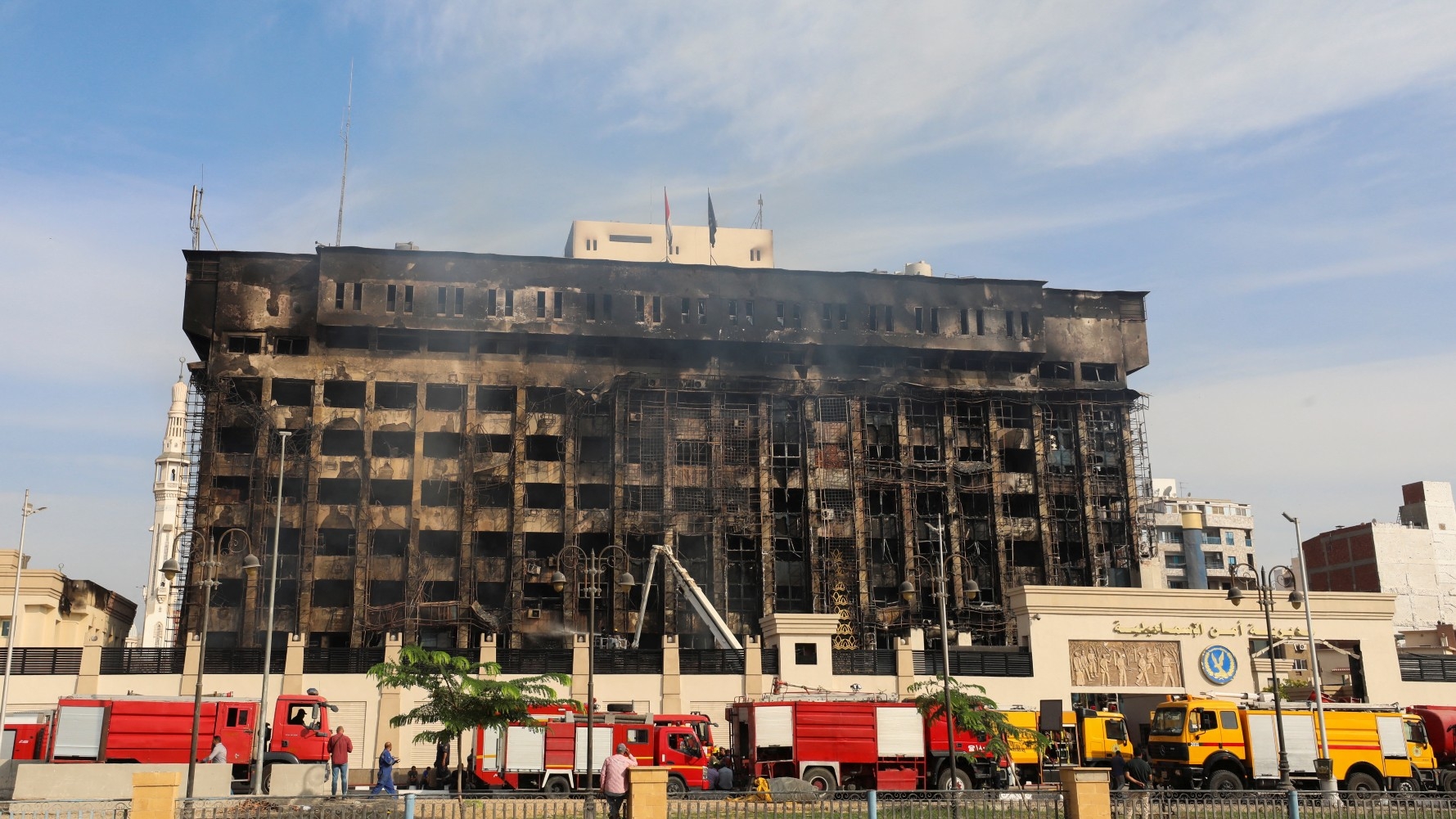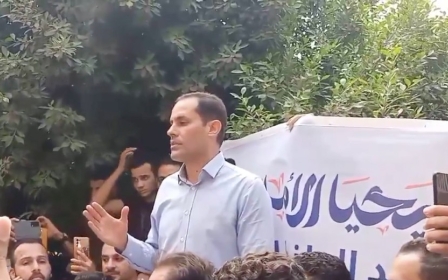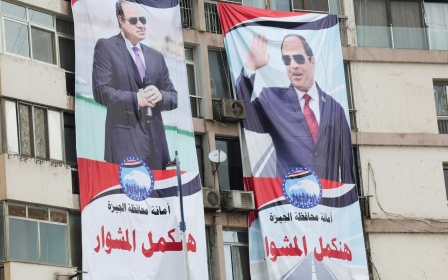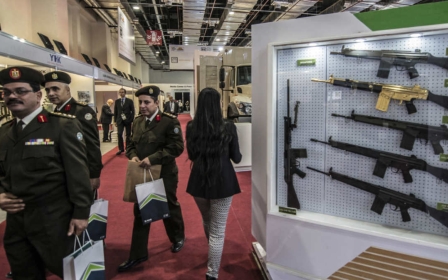Egypt: Government accused of 'covering up' fatalities at police HQ fire

An Egyptian rights group has accused the government of covering up deaths in a major fire that broke out at a police headquarters earlier this week that the interior ministry said only left dozens wounded.
On Monday, the fire destroyed the Ismailia Police Directorate building, but the ministry has yet to disclose the real number of casualties or the reason for the incident.
The fire took place on the same day that President Abdel Fattah el-Sisi announced his intention to run for a third term in the December elections.
Nationwide events were also held that evening celebrating the president's announcement, sponsored by the largest pro-government political party, the Nations Future Party.
On Tuesday, the Egyptian Network for Human Rights (ENHR) published a list of eight names and photos of officers it said died in the fire, which it obtained via a security source who worked at the building.
New MEE newsletter: Jerusalem Dispatch
Sign up to get the latest insights and analysis on Israel-Palestine, alongside Turkey Unpacked and other MEE newsletters
But the interior ministry denied that any deaths took place and reported only 38 injured cases, while the public prosecution has also not reported any deaths in its latest statement on the fire.
A day later, Mada Masr, an Egyptian news website, documented 13 cases of deaths and eight of them matched the names published by the ENHR. The website verified the deaths by citing tributes and invitations to funerals posted online by relatives of the deceased or members of parliament.
Mada Masr documented the victims as follows: Lieutenant Colonel Muhammad Refaat Lebda from Sharkia Governorate, and three police secretaries from different governorates: Reda Abdel Majeed Yahya from Kafr El-Sheikh; Ihab Suleiman Al-Sharif from Beheira; Faraj Al-Harbiti from Ismailia; three police assistants from Sharkia Governorate: Muhammad Jamal Salim, Abd al-Rahman Mansour al-Qaroumi, Tamer Mahmoud Hassan Abd al-Hamid Zard; in addition to six conscripts: Ali Assem Marei Ali Sabra, Hadi Alaa Muhammad Hashem al-Arabi, from Sohag Governorate, and Ahmed Muhammad Jumaa, Omar Tamer Abdel Aziz, and Islam Rabie Al Hajar from Sharkia Governorate, and Mahmoud Abdel Tawab, from Assiut Governorate.
ENHR added the building was used as an unofficial detention centre that held political prisoners, many of them forcibly disappeared.
Forcibly disappeared
It published the list of names of people it described as forcibly disappeared, calling on the authorities to assure their families of their safety and whereabouts.
The names were: Ismail Salama Mohamed Abdullah; Bishoy Abdel Malek Mikhail Hanna; Islam Shawki Sayed Mohamed; Zaki Abdel Hadi Mohamed Shawki; Mustafa Salim Abdel Rahim Nabil; Luay Mahmoud Ali Ahmed; Gamal Shukri Nasser El-Sayed; Ali Nagy Salama Abdel Hadi; Ahmed Gamal Ashraf Mahmoud; and Tamer Mohamed Ahmed El-Bahiri.
The interior ministry has not confirmed or denied the list of names published by ENHR and Mada Masr. It remains unclear why the ministry has not revealed the extent of the casualties.
"The ENHR calls on the Ministry of Interior to issue an official statement regarding the incident, revealing the names of the remaining victims among the employees of the Security Directorate, as well as those held in connection with criminal cases and forcibly disappeared prisoners," the statement said.
"The ENHR condemns the denial by the Ministry of Interior of the fatalities, despite the existence of the names of victims including soldiers, assistant officers, and other officers who are considered free citizens."
It called for revealing the fate of detainees it says were held in the basement of the building or forcibly disappeared prisoners on the seventh floor.
"It can be inferred that the cover-up happening now constitutes a fully-fledged crime and a genuine violation of the human rights of the detainees," it said.
Meanwhile, the director of the Egyptian Initiative for Personal Rights, Hossam Bahgat, wrote on X, calling on the public prosecutor to reveal the names of the victims.
"We hope that the state agencies did not deliberately hide the extent of the tragedy in order not to spoil the president’s celebrations of announcing his candidacy in the same hours after the fire," the human rights activist wrote on Tuesday.
The Egyptian government does not have a published tally of the prison population in the country. Security directorates, like the Ismailia headquarters, are regarded by rights groups as unofficial detention centres where torture and enforced disappearances are commonplace.
Middle East Eye delivers independent and unrivalled coverage and analysis of the Middle East, North Africa and beyond. To learn more about republishing this content and the associated fees, please fill out this form. More about MEE can be found here.




